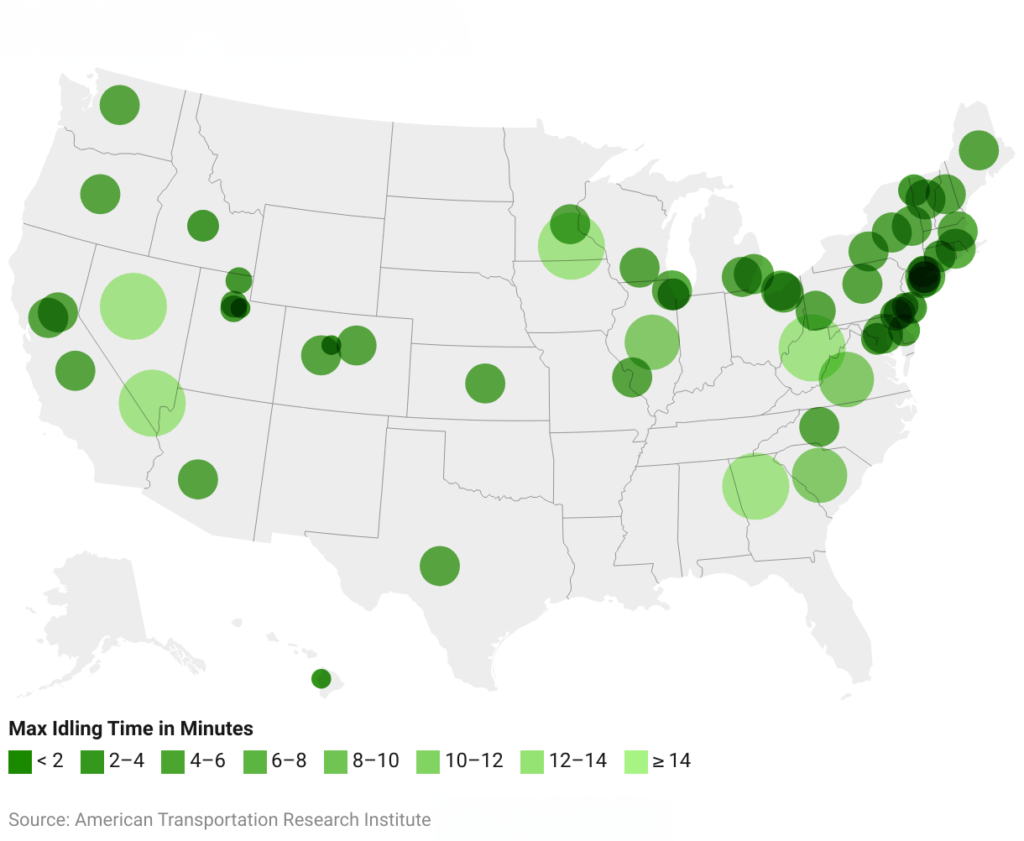We’ve mapped out Idling Laws by State, updated with fresh data for 2024
Given today’s rapidly shifting regulatory landscape, it can be hard to keep track of just how many states have idling laws. Multiple states are considering changes to their idling laws for 2024, most significantly Washington, which is preparing to adopt its first idling regulation. To avoid breaking the law–and potentially racking up hefty fines–fleet managers and drivers need to stay ahead of these changes. While some states offer an exemption for idling to power auxiliary equipment or perform work functions, it is still essential for operators to stay on top of local regulations.
Fortunately, the American Transportation Research Institute (ATRI) has created a comprehensive reference of how many states have idling laws. According to their latest update, 31 states and the District of Columbia currently regulate how much time trucks can spend idling, although a few of those laws are limited to specific counties or municipalities. We’ve created the helpful infographic below as an at-a-glance overview of idling laws by state in 2024.
Mapping Truck Idling Laws by State

As you can see from the map, the patchwork of idling laws varies from state to state; some cities and counties even have distinct idling laws that supersede the statewide regulations. If you’d rather not keep track of the varying idling laws by state, it could be worth exploring other ways to power your work equipment. Viatec makes a range of electrified options that make it easy to perform work functions without idling engines. See the full range at our products page.
If you’d like to learn more about the potential pitfalls of letting your engines idle, check out our idling calculator. It shows just how much it’s costing you to power work equipment with truck engines, and how much you could save by switching to an ePTO solution.
Resources: For more in-depth information on idling laws, including specifics about possible exemptions and potential fines, check out the American Transportation Research Institute. They offer a downloadable overview of current idling laws in two formats: an overall compendium and individual cab-cards for each state or region.
The compendium includes convenient links to relevant legislation, so you can examine the specific language of each rule. The cab cards are an on-the-go resource that lets you keep the law – and the penalties for violating it – close at hand. You can find both at their site.









